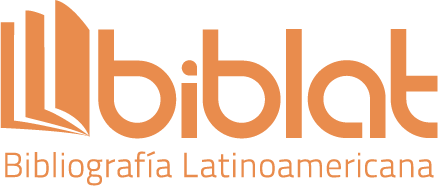About the Journal
Focus and Scope
Ciencias Económicas is a biannual publication from the School of Business and Economics of the Universidad Nacional del Litoral. It intends to contribute to the dissemination of scientific research in the fields related to Economics, Management and Accountancy. Moreover, it aims to spread research which contributes to the improvement of the Educational Quality of such scientific areas at High Level Education. Therefore, potential authors include teachers and researches of national and international universities and research development institutions.
ISSN 1666-8359 (for printed version)
ISSN 2362-552X (for digital version)
Start Date: 1999
Periodicity: Biannual Publication
Languages: Spanish, English, Portuguese
Main Topics: Economics, Management, Accountancy, Education on Economic Sciences.
Peer Review Process
Articles will be subjected to two stages of evaluation:
1. A first review by the Editorial Council, in order to check whether it fulfills the requirements of the journal’s profile and the writing norms. If it is not appropriate, it will be sent back to the authors with the rubric “not appropriate for the journal Ciencias Económicas”. If there are problems with the style or format but the content is still appropriate, authors will be asked to adapt it so that it can be evaluated at the second stage.
2. The second stage is the double-blind evaluation by specialized assessors:
The article will be sent to two evaluators who are not part of the publishing house or editorial team for them to assess the quality of the Paper. These evaluators are chosen by the Editorial team and will be professionals of great international scientific renown, specialists in the area concerning the article. Evaluation is double-blind: authors do not know who evaluators are and vice versa.
If there is no agreement regarding the evaluation, the article will be sent to a third evaluator.
The items that experts will take into account for their verdict are: current relevance and originality of the topic developed; clarity, accuracy and relevance of the problem and hypothesis stated; appropriateness of theories, approach and methodology used; consistency and relevance of the outcomes achieved according to the objectives and hypothesis; relevance and connection of the conclusions and outcomes; updated, relevant and broad bibliography; significance of the work as a contribution to the discipline.
The final result of the verdict might be:
1. Accepted
2. Accepted with modifications
3. Rejected
If the article is accepted with modifications, the comments will be sent to the author, who must submit the updated version of the work within three weeks from the moment they receive the verdict.
Ciencias Económicas does not assume responsibility for unpublished works.
Indexing
Ciencias Económicas is included on the following indexes and directories:
Ethical Considerations and Editorial Practices
The Jounal Ciencias Económicas is committed to scientific quality and to a fair and objective editorial process. In this sense, it agrees with the Code of Conduct and Best Practice Guidelines for Journal Editors from the Committee on Publication Ethics (COPE).
Ciencias Económicas guarantees an appropriate response to readers and authors’ needs by ensuring the quality of all publications, and by protecting and respecting the contents of the articles as well as their integrity. The Editorial Council promises that they will publish corrections, explanations and apologies whenever necessary.
Ciencias Económicas ensures confidentiality regarding the evaluation process, anonymity of evaluators and authors, the content assessed, the report submitted by evaluators and any other information from the Editorial Council. Confidentiality regarding any explanation, claim or complaint from an author to the journal’s committees or the article’s evaluators is also ensured.
If there are any, the actual or potential conflicts of interest must be specified. The editors who read the works submitted must inform the Director of any conflict of interest that may have any influence on their views of the works, and they must refuse to evaluate an article if they believe it is best. They must not make use of their knowledge of the works for their own benefit before they are published.
Ciencias Económicas makes a commitment to respect and protect the integrity of the already published works. Therefore, plagiarism is strictly prohibited and any text in which plagiarism or fraudulent content is found will be removed from the journal -if it has already been published- or it will not be published. In a situation like this, the journal will act as rapidly as possible. When authors accept the terms and agreements of our journal, they must guarantee that the article and any material related to it are original or do not infringe author’s rights. If authorship is shared, full agreement of all the authors involved must be stated.
Open Access
The articles published in Ciencias Económicas are available for free at Universidad Nacional del Litoral’s Virtual Library of Periodical Publications: http://bibliotecavirtual.unl.edu.ar/publicaciones
Accordingly to open access policies, Ciencias Económicas is included in the National System of Digital Repositories (SNRD) of the National Ministry of Science, Technology and Productive Innovation and in the Base of Unified Data (BDU2), harvester of institutional repositories developed by the Consortium of Universities SIU under the National Ministry of Education.
Articles are published for free.
The journal Revista Ciencias Económicas supports what is meant by “open access” by the Budapest Open Access Initiative (BOAI): http://www.budapestopenaccessinitiative.org/
Ciencias Económicas is committed to the policies of Open Access to scientific information, since both scientific publications and research financed with public funds must circulate over the Internet for free and with no restrictions.
Ciencias Económicas sticks to the Open Access model, according to which the contents of scientific publications must be available on the Internet: texts must be complete, accessed for free and at all times, and publishing costs are not transferred to authors. The aim of this policy is to break the economic barriers and achieve equality in terms of both access to information and publication of research outcomes.





















